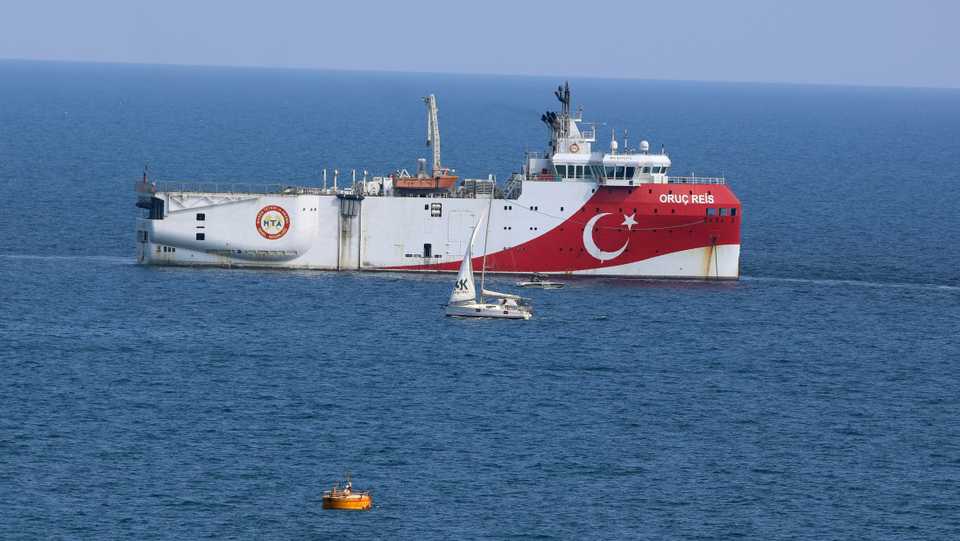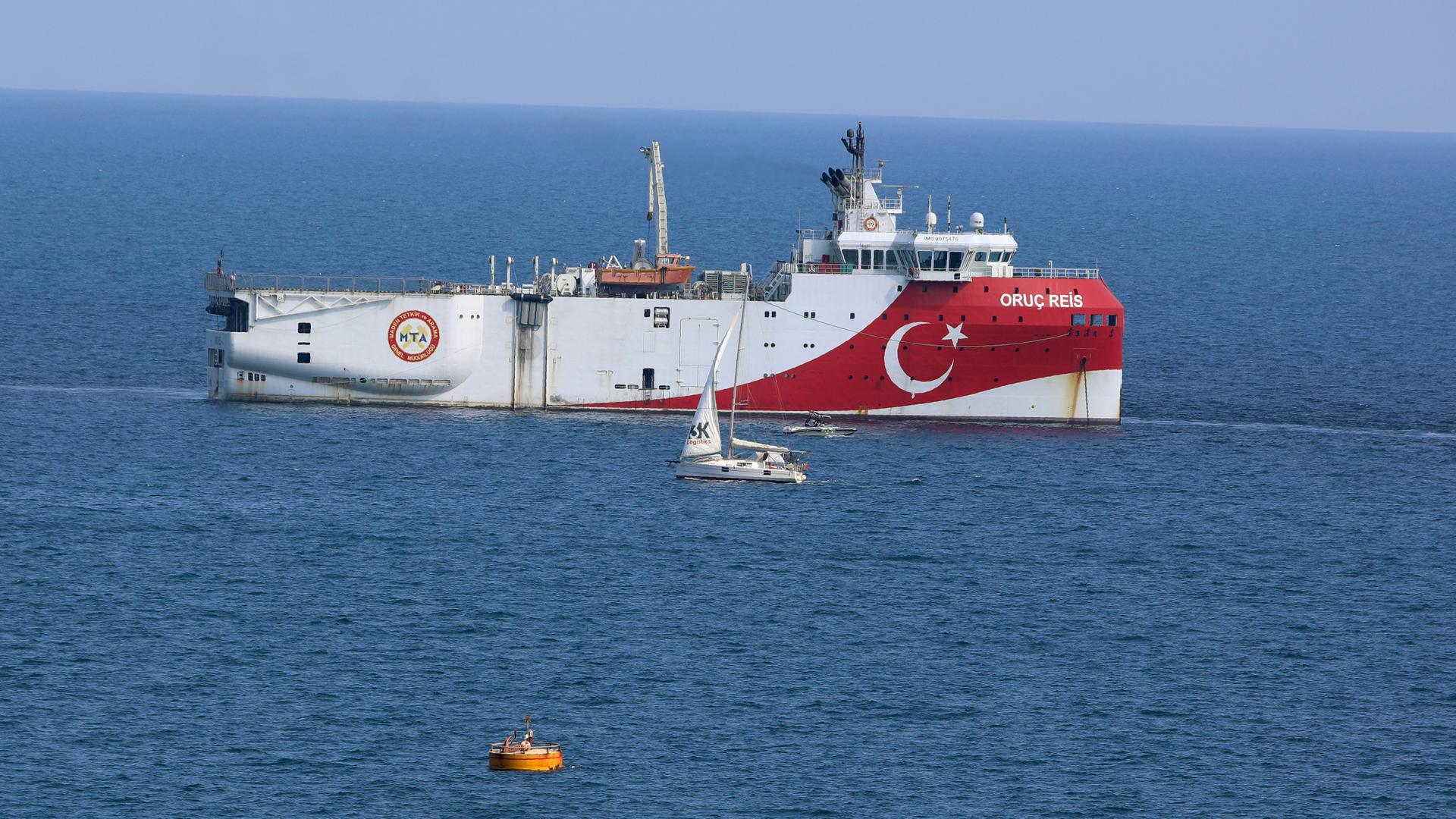
Turkey does not expect to face European Union sanctions over a row with Greece in the eastern Mediterranean.
Foreign Minister Mevlut Cavusoglu said on Monday, a day after a Turkish survey ship pulled out of contested waters, that he did not expect EU leaders, who have already agreed modest sanctions against Turkey, to take further steps next week but such measures could not be ruled out.
Tensions have risen over claims and counter claims pitting Turkey against Greece and Greek Cyprus, which are backed by France, to maritime areas in the Mediterranean potentially rich in natural gas.
“It could be against our ship, our company, individuals. They took such decisions in the past. Have we given up on our determination? No, our determination increased,” he told broadcaster NTV.
The EU has said it fully supports member states Greece and Greek Cyprus in their dispute with Turkey and that it is drawing up potential sanctions if dialogue does not begin. The bloc’s leaders could make a decision at a summit on September 24-25.
Cavusoglu added that the seismic research vessel Oruc Reis will soon resume operations after it anchored off Turkey’s southern coast on Sunday. Turkey has other vessels searching for oil and gas off Cyprus.
READ MORE: Oruc Reis’ return doesn’t mean Ankara is giving up on rights: Turkey
Carrot or stick
Turkey’s Presidential spokesperson Ibrahim Kalin tweeted on Monday that a peaceful solution could be found.
“Greece and EU countries must not waste the chance given for diplomacy and must take reciprocal steps,” he said, without elaborating.
Turkey and the Northern Republic of Cyprus kicked off a joint five-day military exercise Mediterranean Storm on Monday.
Turkey, Greece and several countries have conducted naval exercises in the region in a show of force.
“Sacrificing our rights in the eastern Mediterranean is out of question,” Turkey’s defence minister said while observing the drills.
“We have rights, concerns, and interests in the eastern Mediterranean. Some countries are making counter moves and taking actions against them. We follow them with great patience,” Hulusi Akar said.
“We are in favor of peace, dialogue, negotiations and solving the issue by political means,” Akar said, adding they will not allow any fait accompli and unfairness against the rights of Turkey and the TRNC.
In a brief visit to Greek Cyprus on Saturday, Secretary of State Mike Pompeo said the United States remains “deeply concerned” about Turkey’s actions at sea. Ankara responded that Washington needed to be more neutral.
READ MORE: What is at stake in the eastern Mediterranean?
Amid tensions over the Mediterranean territory and energy exploration, Turkey has repeatedly stressed its willingness to start negotiations without preconditions, in contrast to Greece’s refusal in recent weeks to enter dialogue through both NATO or the EU.
On Sunday, Greece’s prime minister said he is ready to talk to Turkey’s President Recep Tayyip Erdogan if tensions between the two countries eased.
Ankara has consistently opposed Greece’s efforts to declare an exclusive economic zone based on small islands near Turkish shores, violating the interests of Turkey, the country with the longest coastline in the Mediterranean.
The country has also said energy resources near the island of Cyprus must be shared fairly between the Turkish Republic of Northern Cyprus and the Greek Cypriot administration.
READ MORE: Erdogan: EU stance on east Med ‘a test of sincerity’










Discussion about this post